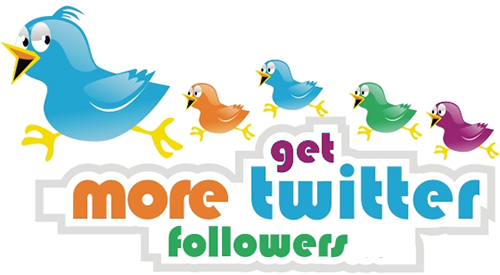I used to work with this kid back in the day; almost three or four times a workday, he would tell someone (or speak to himself out loud, which I would classify as awkward but I do too) how many Twitter followers he had. This is awkward. This was in the early days of Twitter, where people had a vague sense that it was important — it had something to do with Obama winning in 2008, right? — but weren’t really sure what they should be saying there.
Now, I’ll admit: when I started this blog I had a little less than 200 followers. I’ve been doing it for about nine months now, and I have about 730 followers or so. Content is king! I digress. Point is: I do look some days and say, “Whoa, I have three less than yesterday… that’s cold,” or “Nice, six more! I’m on fire!” But then I started thinking about it a little more: isn’t it all kind of meaningless? I mean, especially on Twitter, who cares if you have 20 followers or 20,000 followers? Tons of “viral” things originate with people who had 50 followers and it just keeps getting re-tweeted and shared on other platforms.
Do followers really matter, or is it just a complicated exercise in vanity?
Different approaches to this question all over, but most argue that the actual number in the count doesn’t really matter; there’s a context to it around the clout (or “Klout”) of who follows you as well. Here’s one of the better, more research-laden ways to look at it:
But does your number of followers actually matter? A new paper out of the Max Planck Institute for Software Systems in Germany finds that Twitter follower counts are a poor indicator of influence. Interestingly, the research, which was led by a post-doctoral researcher at the institute by the name of Meeyoung Cha, found two quite different forms of engagement on Twitter. First, retweet influence — when a user’s content is likely to be passed along — and second, mention influence — in which users engage one another in conversation by mentioning each other by Twitter handle.
Cha’s study, for which Twitter administrators contributed data, looked at the relative influence of the 6 million active Twitter users it counted within 52 million active accounts circa August 2009. First of all, retweets are about content; 92 percent of them contained a URL. Influential content aggregators include technology-specific sites like Techmeme, but the study also indicated that sources like the New York Times have widespread influence, and are retweeted on a variety of topics. However, it’s possible for relatively unknown users to gain influence and rise from obscurity by focusing on a single topic.
Of course, having “real” followers does matter — as opposed to spam accounts. That all makes it stunning that stuff like this exists:
Finally — or not finally in the grand scheme of the issue, but finally in terms of this little post — there’s the issue of “who follows you,” with an emphasis on who. This is basically how Klout works. If you have 10K followers and they’re all spam accounts save 2 people, that’s ludicrous — and talking up the 10K means nothing. But if you have 700 followers and there’s 240 thought leaders on there, that’s something. It’s not as impressive to say “700” as opposed to saying “10,000” — and half the battle with metrics is knowing what to say that sounds impressive to the right people — but 240 people who themselves have clout in the space you’re trying to cultivate is a great jumping-off point for you in terms of whatever message/end game you’re putting forth.
I just did a Klout score, by the way — had never done one before writing this post — and it looks like I’m slightly above average (which is how I’d define myself in the real world! Just kidding; I’m trying to learn to love myself) with a score of 46.
Point is: bigger is always going to be seen as better, especially in American business — it’s the same way we think about sex sometimes, or think about page views as opposed to the website in question doing what it should do (i.e. conversions) — so there’s an uphill battle around discouraging people from discussing / analyzing their Twitter followers. In reality, though, it doesn’t matter. The who might matter — not sheer numbers, but quality of contact — but what really matters is the content and ideas you put forth.
Hey, I’m still working on that part.
